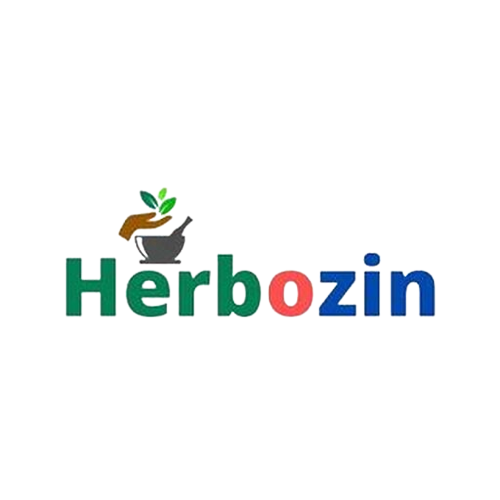Maintaining a strong and resilient immune system is crucial for our overall health and well-being, especially in today’s challenging times.
While there are various factors that can influence our immune system, one vital aspect is the food we consume. Our diet plays a significant role in providing the necessary nutrients, including vitamins, to support our immune function.
In this blog post, we will explore the nutritional class that effectively absorbs vitamins and sustains the immune system. We will dive into the specific nutrients, discuss their importance, and provide tips on incorporating them into your diet. So let’s get started and discover the key elements that can boost your immune system to keep you healthy and vibrant.
The Mighty Macronutrients: Carbohydrates, Proteins, and Fats
Before we delve into micronutrients and vitamins, it’s crucial to understand the importance of macronutrients – carbohydrates, proteins, and fats. These essential nutrients provide us with energy and serve as building blocks for various bodily functions, including supporting a robust immune system.
Carbohydrates:
Carbohydrates are our body’s primary source of energy. They are found in a variety of foods such as fruits, vegetables, whole grains, and legumes.
While some sources of carbohydrates are better than others, incorporating a balanced intake of carbohydrates helps regulate blood sugar levels and provides essential fuel for our immune cells.
Proteins:
Proteins are the building blocks of life and play a fundamental role in immune function. They are composed of amino acids and are responsible for maintaining the structure and function of cells, antibodies, and enzymes. Including lean sources of protein such as poultry, fish, legumes, and nuts in your diet can contribute to a healthy immune system.
Fats:
While fats have long been associated with negative connotations, it’s important to note that not all fats are bad for you. Healthy fats, such as those found in avocados, nuts, seeds, and fatty fish like salmon, are essential for the absorption of fat-soluble vitamins like A, D, E, and K. These vitamins are crucial for maintaining a robust immune response.
By incorporating a balanced intake of carbohydrates, proteins, and healthy fats, you can provide your body with the necessary fuel and building blocks to support your immune system.
Micronutrients: The Heroes of Immune Support
Now that we understand the importance of macronutrients let’s dive into the world of micronutrients. Micronutrients are essential vitamins and minerals that our bodies require in smaller quantities but play a pivotal role in numerous bodily functions, including supporting our immune system.
Vitamin C: The Immune-Boosting Powerhouse
When it comes to supporting our immune system, vitamin C often steals the spotlight. This vitamin is known for its potent antioxidant properties, which help protect our cells from damage caused by harmful free radicals. Additionally, vitamin C is involved in stimulating the production of white blood cells, the key players in our immune response.
Including vitamin C-rich foods like citrus fruits, strawberries, kiwis, and bell peppers in your diet can provide a significant boost to your immune system. If you’re unable to consume an adequate amount of vitamin C through your diet, supplements are a convenient option. However, obtaining nutrients through whole foods is generally preferable due to their additional fiber and phytonutrient content.
Vitamin D: The Sunshine Vitamin
Vitamin D, often referred to as the “sunshine vitamin,” is essential for our immune health. However, due to various factors such as limited sun exposure or living in regions with less sunlight, many individuals may suffer from vitamin D deficiency. Becaue our body produce vitamin D whin sunlight.
Low levels of vitamin D have been linked to compromised immune function, making it crucial to ensure an adequate intake of this vital nutrient. Along with sunlight, dietary sources of vitamin D include fatty fish like salmon and mackerel, fortified dairy products, and egg yolks.
Vitamin A: The Defender
Vitamin A plays a significant role in maintaining the integrity of our skin and mucosal surfaces, which act as barriers against pathogens. It also helps regulate immune responses and is involved in the production and function of white blood cells.
Including foods rich in vitamin A such as sweet potatoes, carrots, spinach, and liver in your diet can provide the necessary support for your immune system. However, it’s important to note that excessive intake of vitamin A from supplements can be harmful. Therefore, it is recommended to obtain vitamin A through whole food sources whenever possible.
Vitamin E: The Protector
Vitamin E is an antioxidant that helps defend our cells against oxidative stress. It supports immune function by neutralizing free radicals and enhancing the activity of certain immune cells, promoting a more robust immune response.
Nuts, seeds, spinach, and broccoli are excellent sources of vitamin E that can be easily incorporated into your diet. By including these foods, you can nourish your immune system and protect it from damage.
Zinc: The Immune Modulator
Zinc is a mineral that plays a vital role in immune function and helps regulate the body’s inflammatory response. It is involved in the production and function of immune cells, making it an essential nutrient for a healthy immune system.
Foods rich in zinc include oysters, lean meats, poultry, beans, and dairy products. By incorporating these zinc-rich foods into your meals, you can provide your body with the necessary support to sustain your immune system.
Selenium: The Antioxidant Ally
Selenium is a powerful antioxidant that helps protect our cells from damage. It plays a crucial role in maintaining a healthy immune system by supporting the production and function of antibodies.
Including selenium-rich foods such as Brazil nuts, seafood, eggs, and legumes in your diet can bolster your immune function and protect your body from harmful oxidative stress.
Putting It All Together: Creating an Immune-Supportive Diet Plan
Now that we’ve explored the significant vitamins and minerals that support the immune system, it’s time to bring it all together and create a comprehensive dietary plan to sustain a robust immune response. Here are some key tips and guidelines to keep in mind:
Eat a Rainbow:
Aim to consume a variety of fruits and vegetables of different colors to ensure a well-rounded intake of vitamins and minerals. Each color signifies a unique set of nutrients that are necessary for optimal immune function.
Incorporate Lean Proteins:
Include lean sources of protein such as poultry, fish, legumes, and nuts in your meals. These proteins provide the necessary amino acids and support the production and function of immune cells.
Don’t Fear Healthy Fats:
Incorporate healthy fats like avocados, nuts, seeds, and fatty fish into your diet to aid in the absorption of fat-soluble vitamins A, D, E, and K. These vitamins are vital for a healthy immune system.
Stay Hydrated:
Adequate hydration is crucial for overall health, including supporting immune function. Drink plenty of water throughout the day to keep yourself hydrated and optimize your body’s immune response.
Moderation is Key:
While vitamins and minerals are essential, it’s important to maintain a balanced approach. Excessive intake of certain nutrients, such as vitamin A, can have adverse effects. Aim for a well-rounded and varied diet to ensure you’re obtaining all the necessary nutrients without going overboard.
Conclusion
When it comes to supporting our immune system, nutrition plays a vital role. By focusing on the nutritional class that absorbs vitamins and sustains the immune system, such as macronutrients and micronutrients, we can provide our bodies with the necessary tools to stay healthy and vibrant.
Incorporating a variety of fruits, vegetables, lean proteins, healthy fats, and hydration into our daily diet can optimize our immune function and maintain a strong defense against pathogens. Remember, achieving a balanced and nutrient-rich diet is not only beneficial for your immune system but also for your overall well-being.
So, why wait? Start incorporating these immune-supportive nutrients into your meals today and take proactive steps towards bolstering your immune system. Your body will thank you with improved health and vitality.
Disclaimer: The information provided in this blog post is for informational purposes only and should not be considered as medical advice. Please consult with a healthcare professional or registered dietitian before making any significant changes to your diet or lifestyle.











caprolactam xyandanxvurulmus.fAeI3D2uiwex
bahis siteleri porn sex incest wrtgdfgdfgdqq.dTeWsyk54OIK
sektor benim zaten amin evladi wrtgdfgdfgdqq.SYMsAM2RLPZB
sex 4k videos ggjinnysflogg.3LbeG43Eszw
goodhere Big Ass porn vurucutewet.n9r28C7YOyT
समलैङ्गिक अश्लील qqyyooppxx.h1jEl0j5QCk
बेतरतीब अश्लीलता के बारे में बतावल गइल बा hjkvbasdfzxzz.ySpCum0wGUk
कार्टून अश्लीलता txechdyzxca.eVrTAsjEzvV
बड़े स्तन अश्लील hkyonet.USPyQwUY0pi
ਰੂਸੀ ਪੋਰਨੋਗ੍ਰਾਫੀ madisonivysex.HC4A21rMKbv
ladesbet ਗੇ ਪੋਰਨ ladesinemi.ebuF45qGjIw
ladesbet クンニリングス ポルノの ladestinemi.kqSuxPmjvTN
Wow, amazing blog layout! How lengthy have
you been blogging for? you make blogging glance easy.
The total glance of your website is great, let alone
the content material! You can see similar here e-commerce